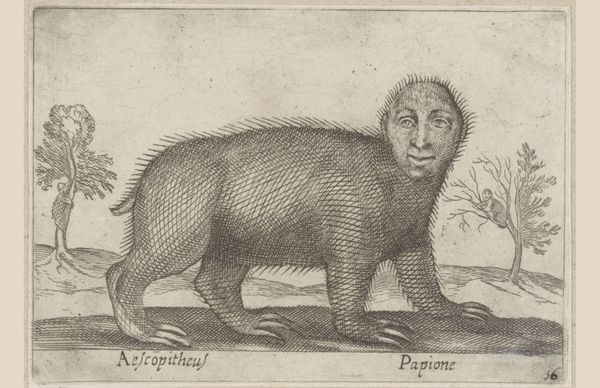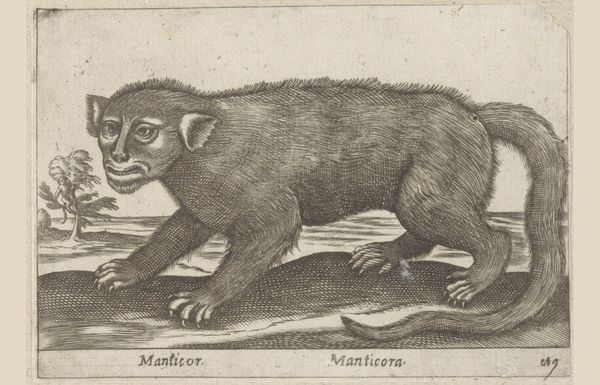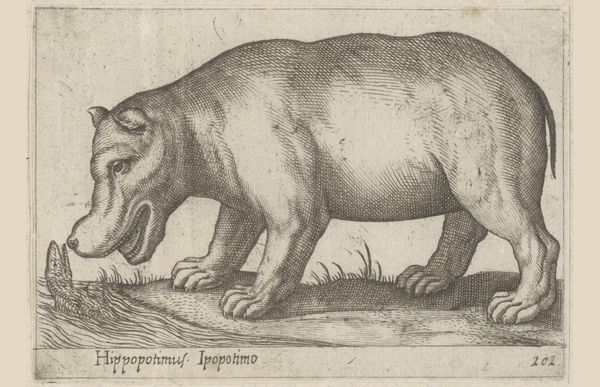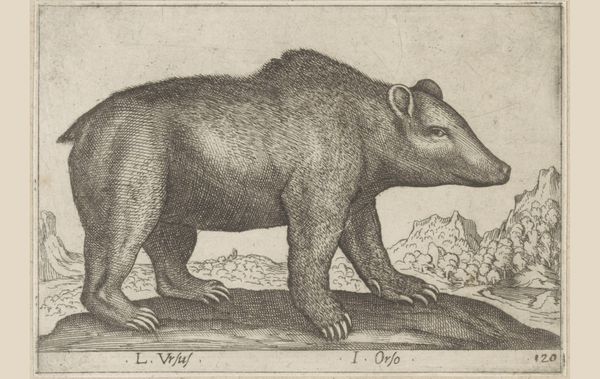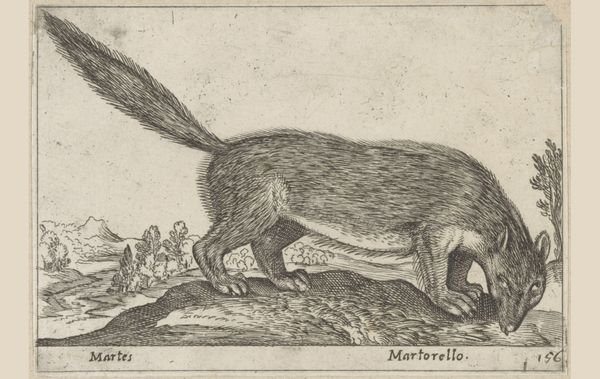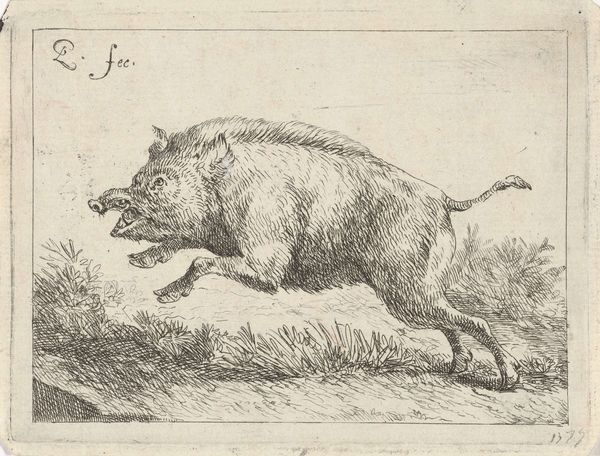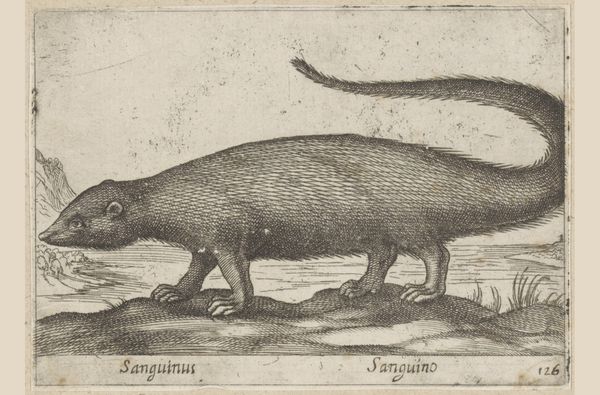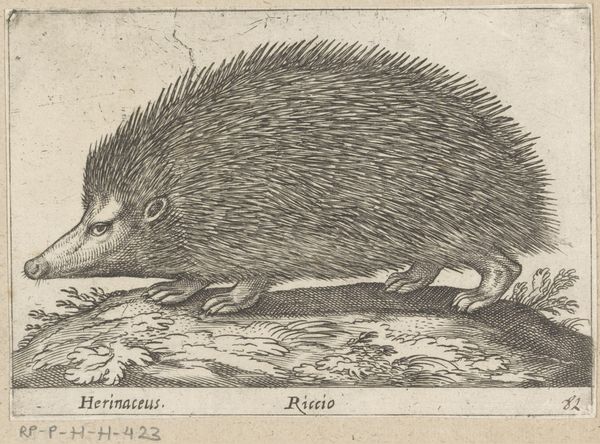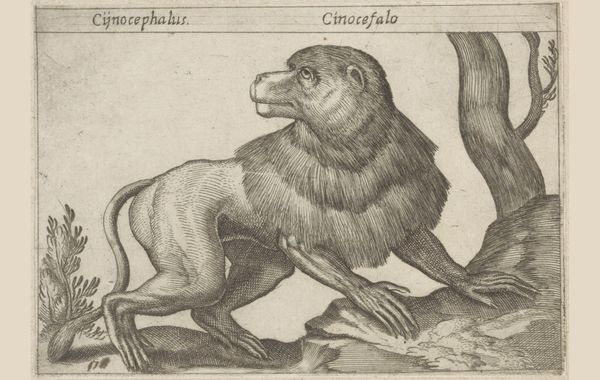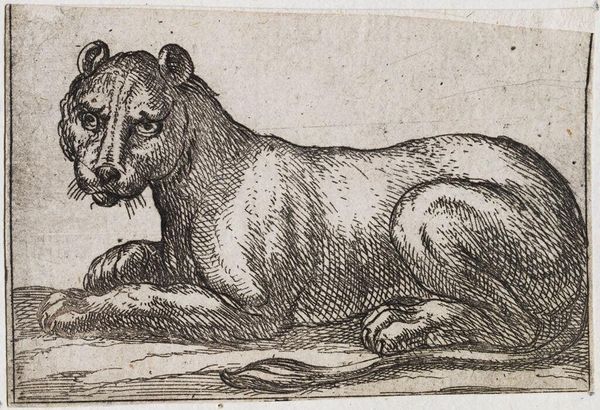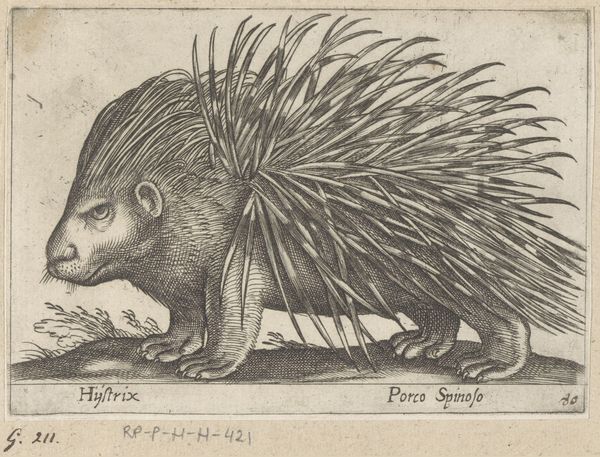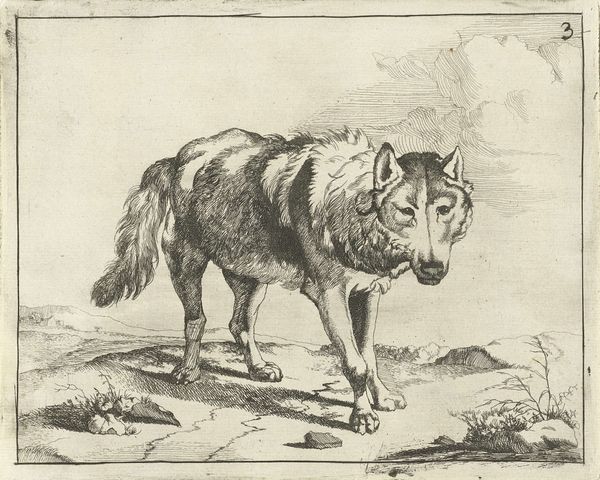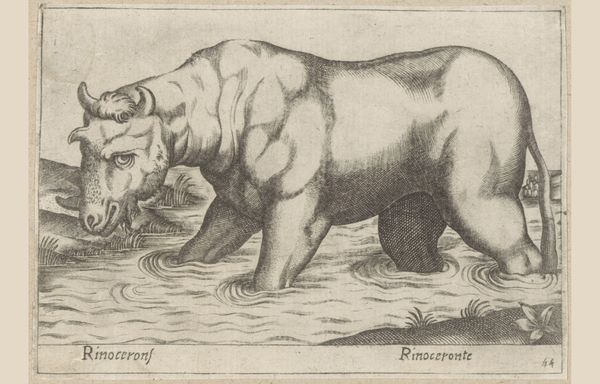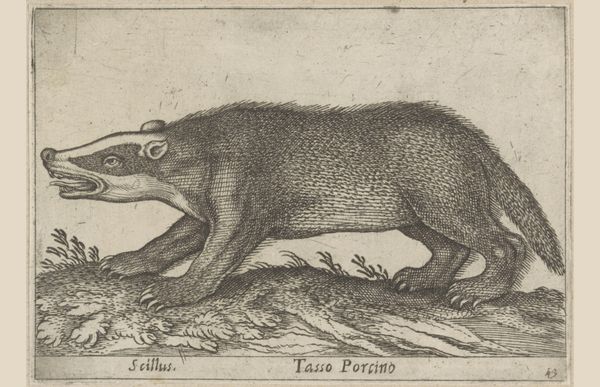
print, etching, engraving
#
animal
# print
#
etching
#
history-painting
#
engraving
#
realism
Dimensions: height 95 mm, width 137 mm
Copyright: Rijks Museum: Open Domain
This is Antonio Tempesta's "Bever", an engraving made sometime between 1575 and 1630. Notice how Tempesta's use of line dominates the image. The density and direction of these lines create textures that define the beaver's fur, the scales on its tail, and the vegetation underfoot. The beaver's pose is striking; it’s caught mid-action, mouth open, seemingly caught between aggression and defense. What does this choice tell us? Consider the era in which this image was made. Natural history was intertwined with moral lessons, and animals often symbolized human traits. The beaver, known for its industriousness, might be seen as an emblem of diligence, or perhaps its territorial stance represents vigilance. The formal choices—the dynamic pose, the intricate linework—elevate the animal beyond mere representation. Tempesta uses these elements to suggest a broader narrative, inviting us to contemplate the beaver's place in the natural order and its symbolic role in human understanding.
Comments
No comments
Be the first to comment and join the conversation on the ultimate creative platform.
